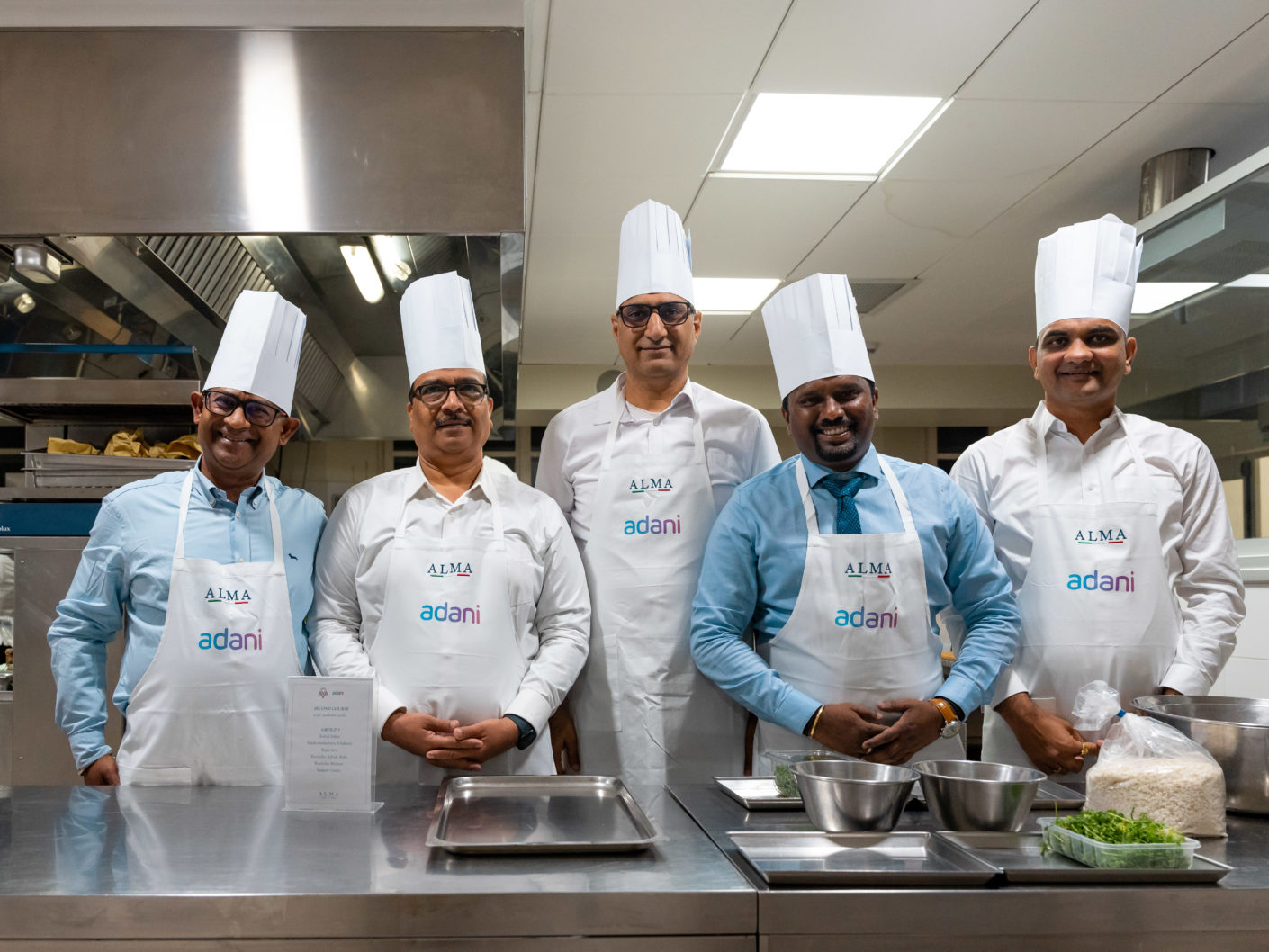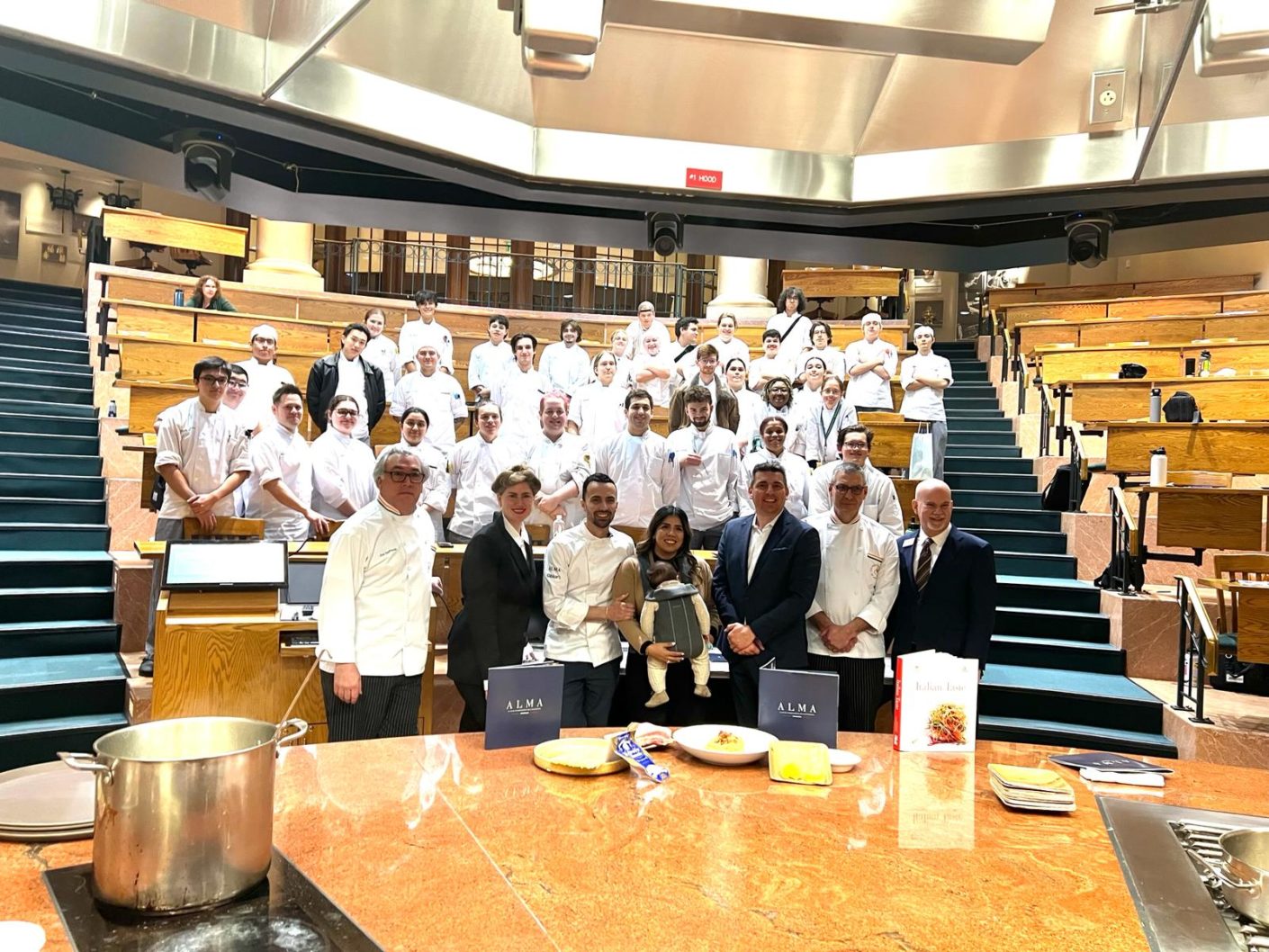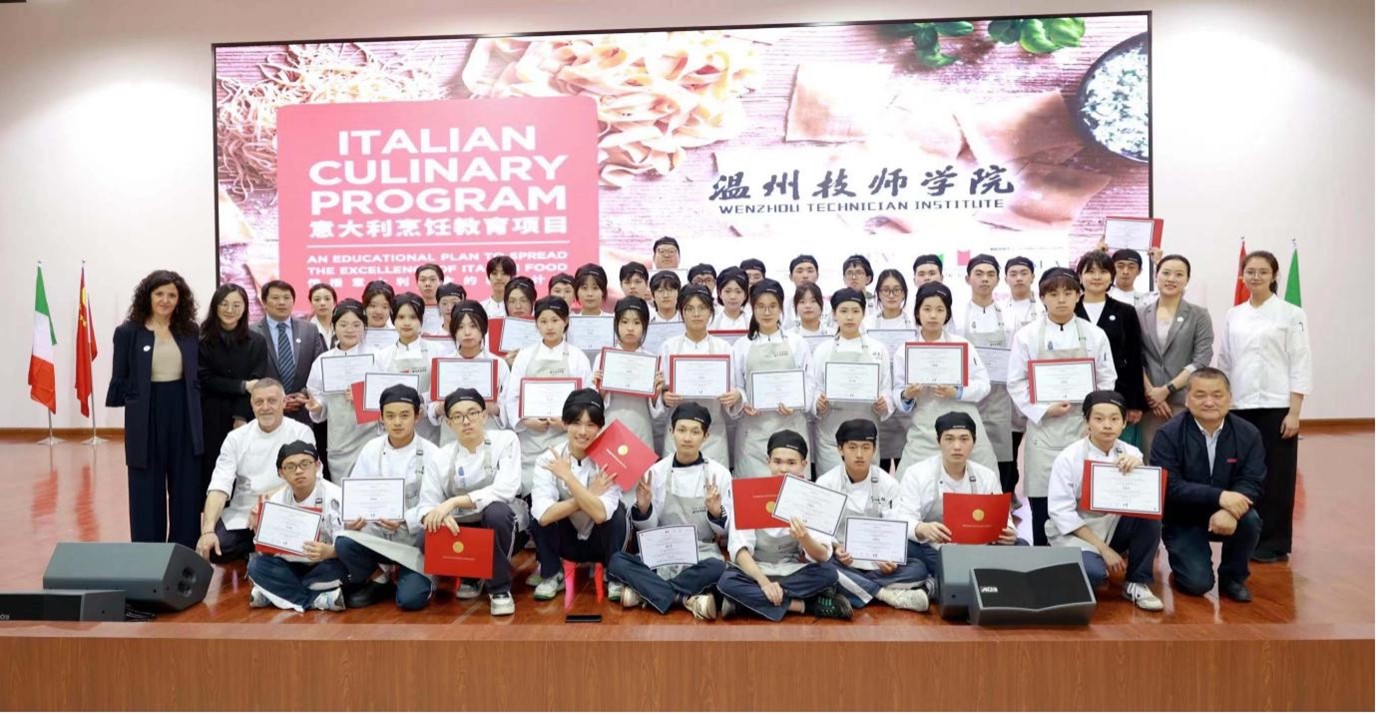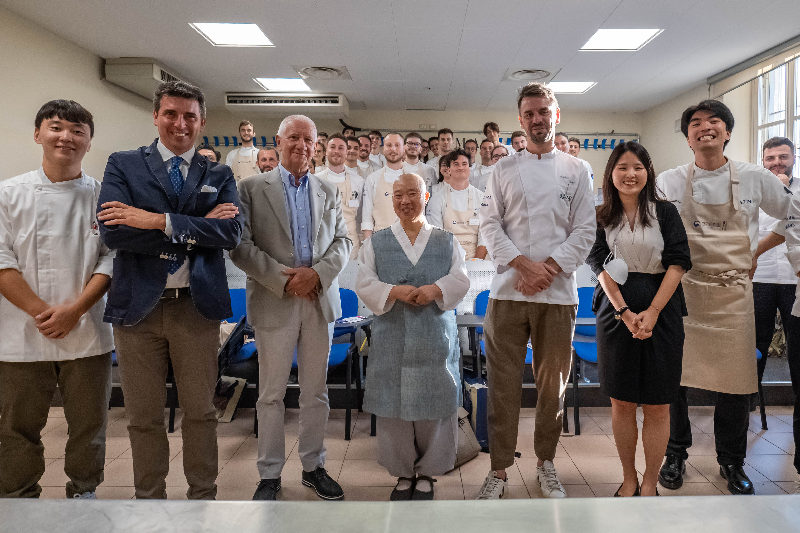
Korean Nun Jeong Kwan in an Exclusive Masterclass for ALMA

Korean nun Jeong Kwan, known for the Netflix series Chef’s Table and winner of the Icon Award at the 2022 edition of Asia’s 50 Best Restaurants, has returned to Italy. As a guest of the Korean Cultural Institute, an organization promoting Korean cuisine in Italy, yesterday Jeong Kwan held an exclusive Masterclass at ALMA dedicated to Temple Cuisine. This event is part of her tour in our country, which includes meeting chefs and giving courses open to the public.
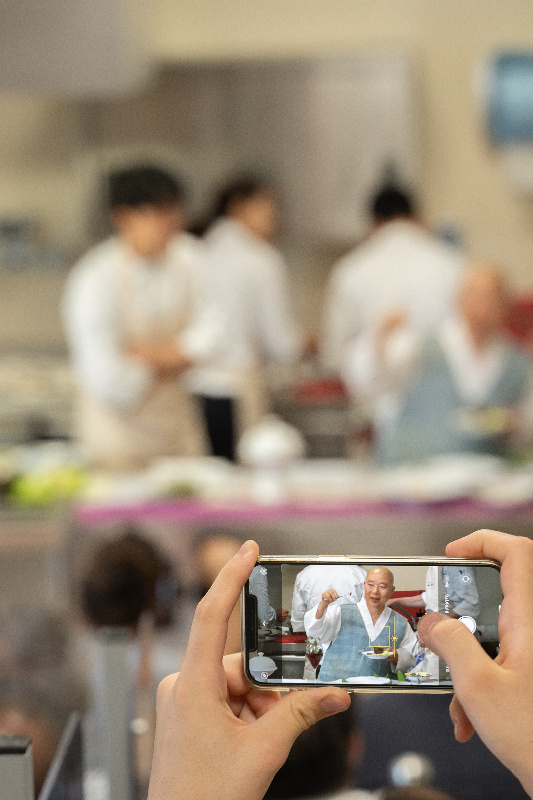
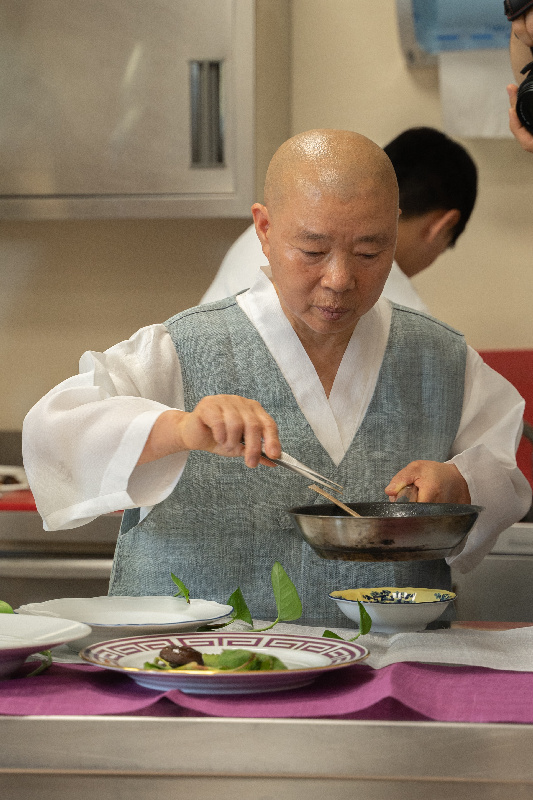
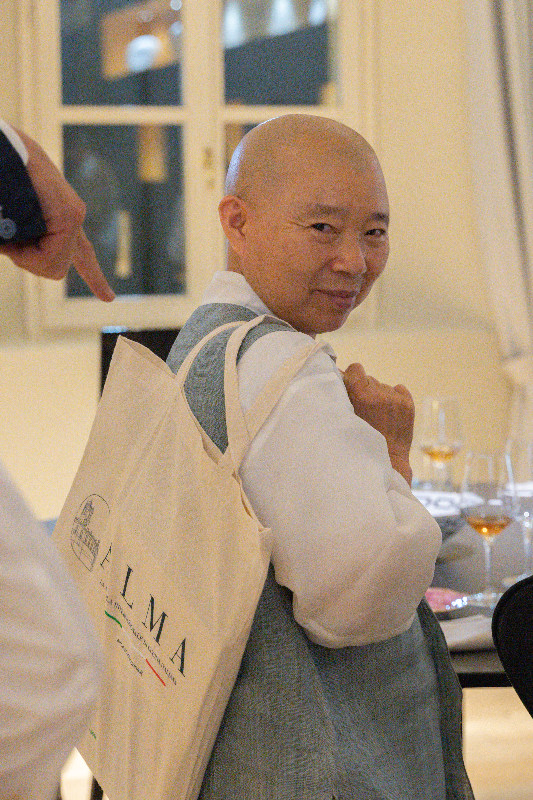
In front of ALMA’s Advanced Cooking and Pastry Courses students, Chef Instructors, staff members, and journalists in the sector, the nun gave a lesson focused on Eastern ingredients, scents, and flavours, enriched by moments of deep emotion and spirituality. She began by enchanting and captivating the audience with a meditation practice, which created the right atmosphere and frame of mind for “entering” her dimension and following her story. Together with her students and assistants, Jeong Kwan took everyone on a journey where cooking was just one aspect of the experience and where taste, soul, and matter merged into an ascetic experience.
In the evening she was a guest, together with the representatives of the Korean Cultural Institute, at the Cena D’Autore (Gourmet Dinner) with chefs Sara Nicolosie and Cinzia De Lauri, ALMA graduates who now are now at the helm of the Milanese restaurant Altatto, where they offer a vegetarian and sustainable cuisine.
The next stop on the nun’s tour will be in Milan, with Chef Pietro Leemann at the Joia restaurant, Europe’s first Michelin-starred vegetarian restaurant and the only Michelin-starred vegetarian restaurant in Italy, where they will collaborate in the creation of dishes that will be available to see in a video on the YouTube channel of the Korean Cultural Institute.
On July 21 and 22, the Philosopher Chef, as she was named by The New York Times, will hold two public events at the Eataly Rome headquarters to present the connection between Korean vegan cuisine and Buddhist philosophy.
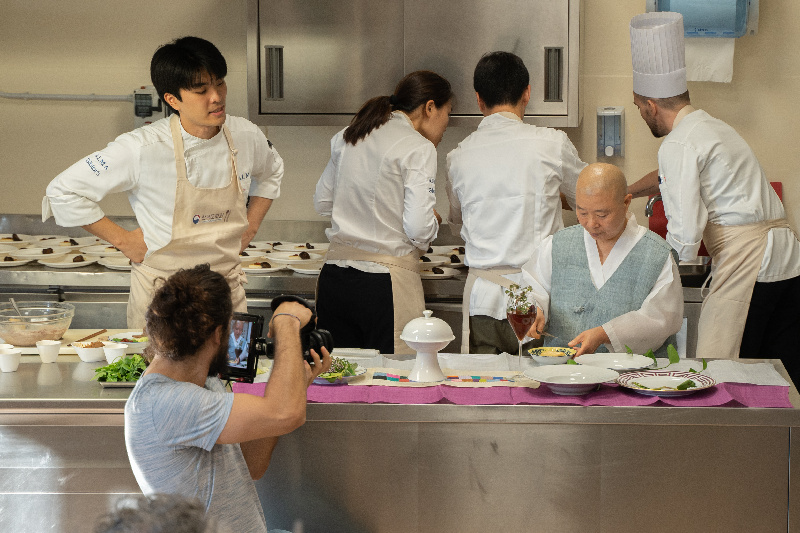
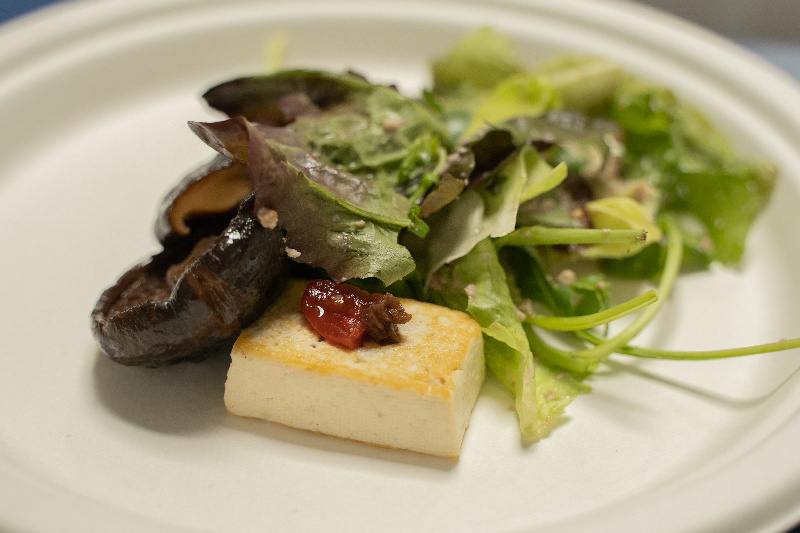
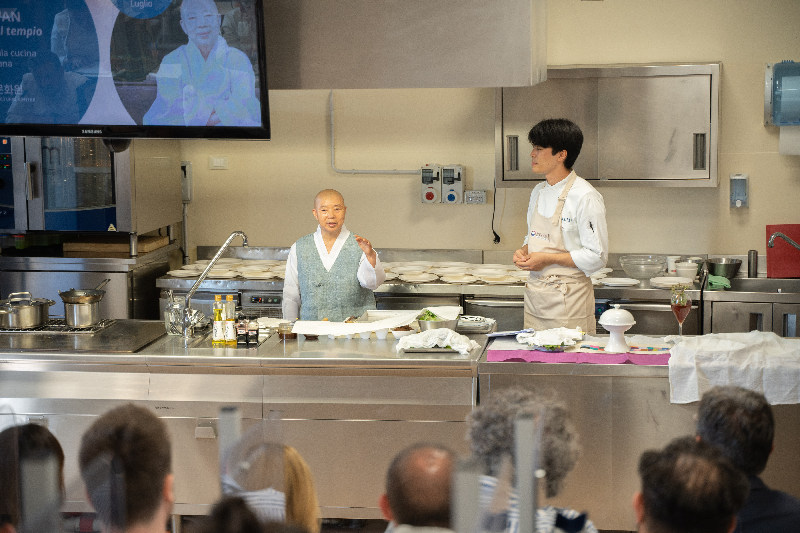
On July 21 at 7:00 pm, she will give a practical cooking class on how to prepare Sautéed shiitake mushroom in rice syrup, Seasonal Korean vegetables and Dubu jang, a tofu-based dressing. The sauté is a recipe that Jeong Kwan described on Netflix as being deeply meaningful to her, because it was the last dish she cooked for her father when he visited her at the temple to convince her to return home. After tasting it, her father realized there must be a sense of peace in that way of life and he told her: “I’m going back home without worries, take care,” and he died a week later.
The following day, also at 7:00 pm, there will be the opportunity to participate in the evocative Baru Gongyang ceremony, the monastic meal eaten in wooden bowls called baru in Korean. It is a meditative ritual during which each participant will be able to enjoy typical vegan dishes of Buddhist temple cuisine, including rice, soups and side dishes, in their own baru. The Korean nun Jeong Kwan will offer all participants a truly unique experience that has been passed down for millennia in Korean Buddhist temples.
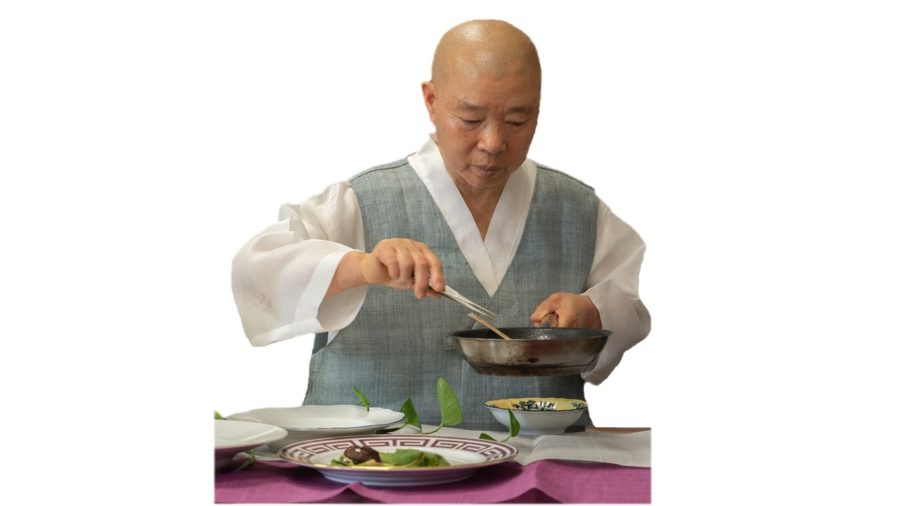
“I communicate with the world through Buddhist temple food. I came to Italy in 2019 thanks to the Korean Cultural Institute, and I am very happy to be back this year.
In my meetings, I will communicate the philosophy of temple Buddhist cuisine through Baru Gongyang and the recipes that mean a lot to me.”
Jeong Kwan
Born in 1956 in Yeongju, South Korea, at the age of seventeen she decided to leave home and live with the Zen nuns in the Chunjinam Hermitage. Having grown up on a farm, Jeong Kwan handles with the gifts of nature with great expertise and for her cooking is an act of meditation, so much so that The New York Times named her the ‘Philosopher Chef.’ Jeong Kwan prepares the meals for the nuns and monks and for visitors to the temple, using ingredients grown in the garden and preserved using drying and fermentation techniques. Despite her never owning a restaurant or taking cooking courses, many chefs are inspired by her.
In 2015, New York Buddhist chef Éric Ripert invited her to New York to cook at Le Bernadin restaurant, and in 2017 she became widely known after appearing in an episode of Chef’s Table on Netflix. This year she won the Icon Award at the 2022 edition of Asia’s 50 Best Restaurants.

Temple cuisine
At the Chunjinam Baekyangsa temple, in South Korea, the nun follows the rhythms of the days and of the seasons according to ancient Buddhist culinary culture and the rules of peasant and traditional cuisine. According to Buddhist teachings, preparing and sharing food are part of religious practice. Jeong Kwan cooks simple and flavourful dishes for the nuns, monks and visitors to the temple, using seasonal vegetables and flowers, spices of which she knows every characteristic, and ancient preservation and fermentation techniques.
All animal foods, except for some dairy products, are prohibited, as well as ‘Osinchae’ plants (garlic, allium tuberosum, green onions, Korean chives and asafoetida) because they interfere with meditation. In addition, this is a cuisine that lives in harmony with nature and avoids any form of food waste.
Korean Cultural Institute
The Korean Cultural Institute in Rome, whose offices in Via Nomentana 12 were opened in October 2016, is dedicated to strengthening the relationships and cooperation between Korea and Italy. Of the many initiatives organized by the Institute throughout the year, the best known is Korea Week, organized in collaboration with the Embassy of the Republic of Korea in Italy. During this week dedicated to Korea, artists, culture experts and famous Korean figures come to Italy to offer an in-depth presentation of a different theme every day, so that visitors can learn about the country’s customs and traditions.
For further details please see the website: www.culturacorea.it

